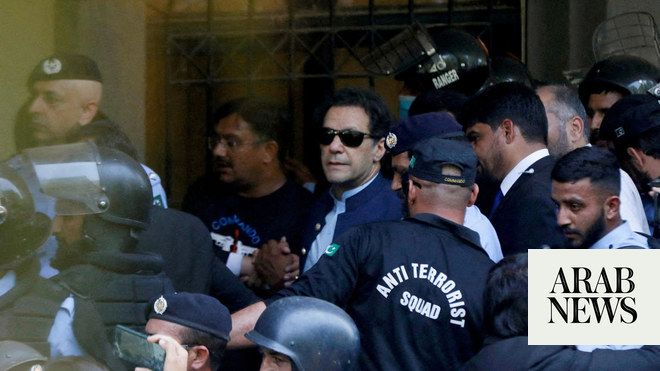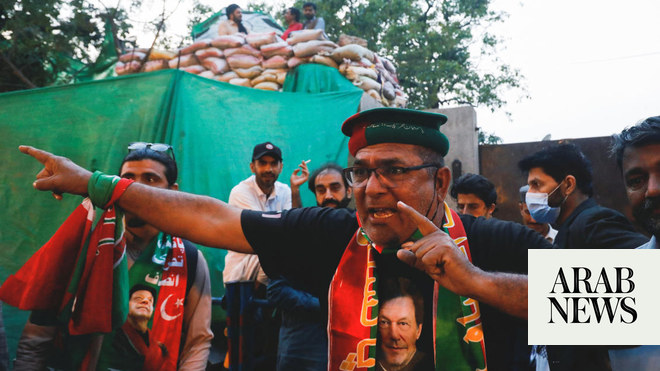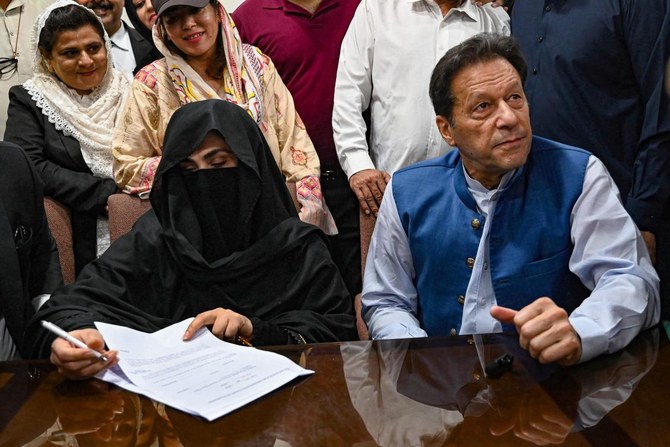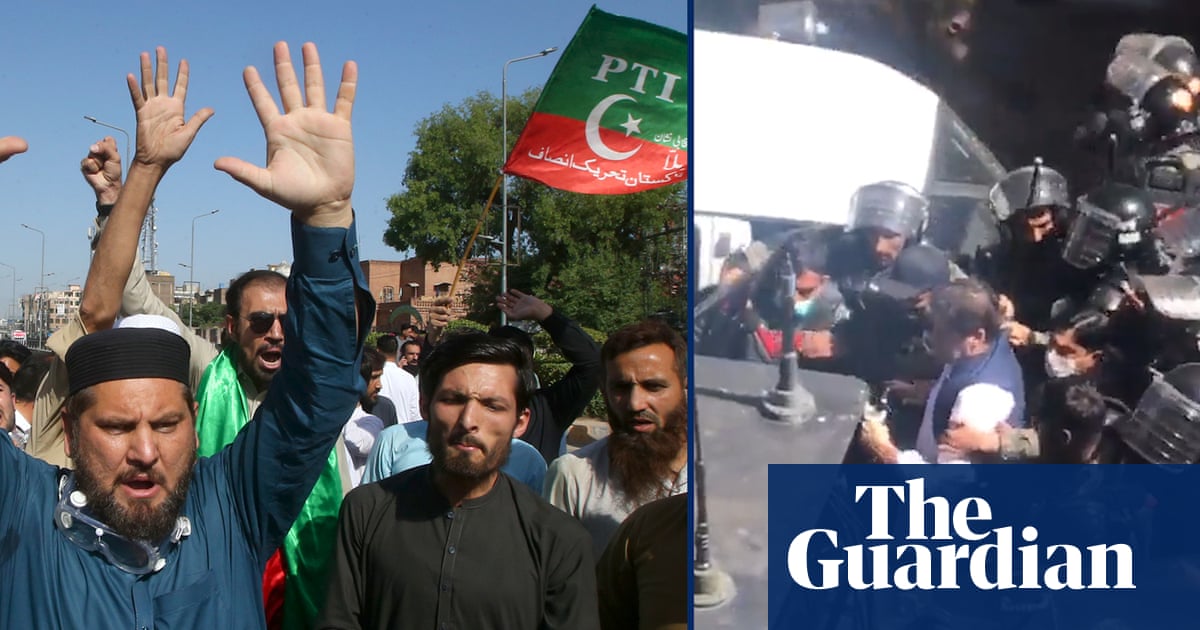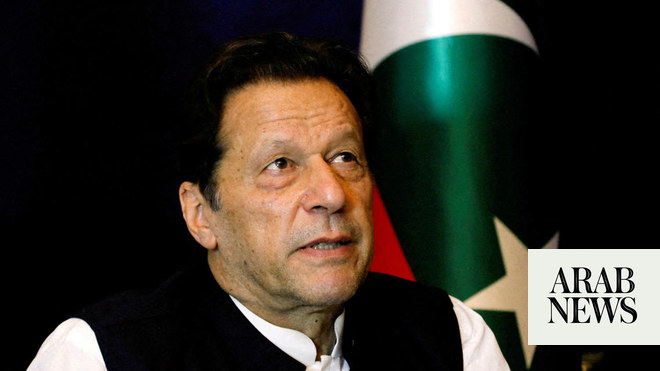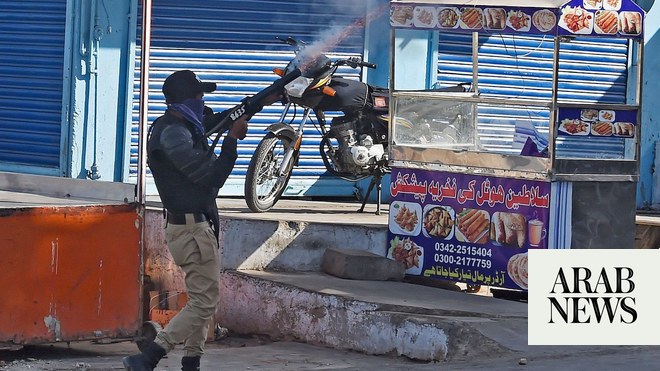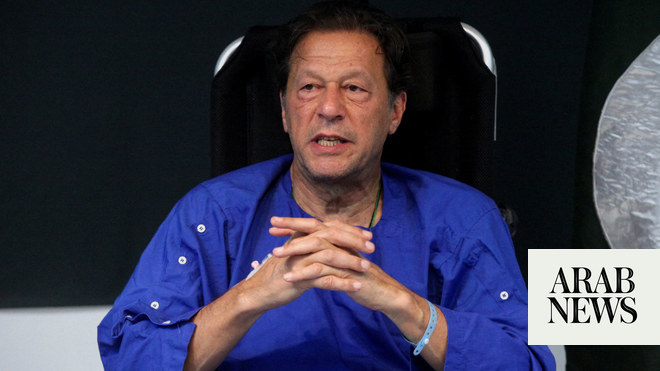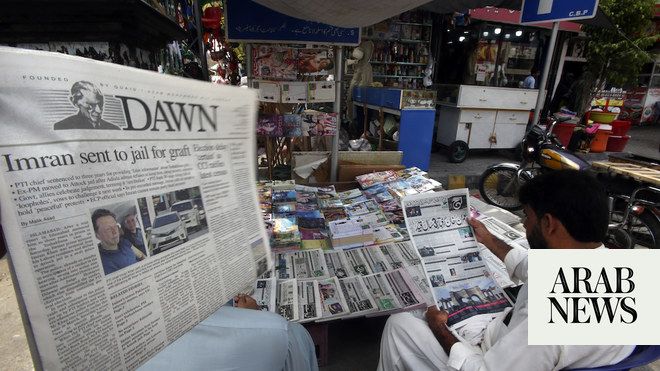
Khan arrested on Saturday after court sentences him to 3 years in jail
Guilty verdict may end Khan’s future in politics, ahead of general elections
ISLAMABAD: Legal experts and political analysts in Pakistan on Sunday weighed in on the conviction of former prime minister Imran Khan, with some raising concerns over the legal procedures that led to his arrest and the possibility of delayed elections.
Khan, 70, was arrested on Saturday after a district court in Islamabad sentenced him to three years in prison for concealing assets after selling state gifts.
His Pakistan Tehreek-e-Insaf party said the conviction was “tinted by political posturing” and “conspicuously reached at haste” to keep the former leader out of elections due to take place later this year.
“The decision by the (Islamabad) sessions court to convict Imran Khan has very little to do with the law and everything to do with the current political quagmire the country finds itself in,” Nimra Arshad, a high court lawyer, told Arab News.
“The procedure followed by the court which ended in a criminal conviction without the examination of the defense witnesses and the accused absent from court at the time of the verdict announcement raises serious questions regarding the trial’s compliance with the fundamental right to fair trial and due process,” she said.
Khan was removed from office in a parliamentary no-confidence vote in April last year and has since led a popular campaign against the current government led by Prime Minister Shehbaz Sharif, accusing it of colluding with military leaders to oust him and keep him locked out of politics.
The former international cricket star was accused of misusing his premiership to buy and sell gifts in state possession that were received during visits abroad and worth more than 140 million Pakistani rupees ($635,000).
The guilty verdict could bar Khan from politics under a law that stipulates people with a criminal conviction cannot hold or run for public office. PTI said it will challenge the decision.
Shoaib Shaheen, a lawyer on Khan’s legal team, said the trial was not fair.
“This is the first and may be the last case where the judge rejected the defense witnesses without listening to them, saying ‘they are not relevant,’” he told Arab News.
“The powerful factions in our country, and the government were unable to compete with Khan in politics,” he said. “We will file a petition on Monday in the Islamabad High Court and will, hopefully, immediately get bail after the first hearing.”
Prime Minister Sharif has proposed that parliament be dissolved on Aug. 9. According to the constitution, that will be followed by the transfer of power to a caretaker setup bound to hold elections in 90 days.
However, officials at the Council of Common Interests approved on Saturday results of Pakistan’s first-ever digital population census, signaling that general elections may be delayed for months in order to complete the drawing of new constituency boundaries according to the new results.
“General elections may not take place in this year,” legal expert Usama Khawar said. “The government wants to see Khan cut down to size before the caretaker setup is installed.”
Khawar said Khan’s legal team was given “sufficient” chance to present their witnesses for defense arguments, but added that the hearing in this case was adjourned in a day instead of the usual seven days.
Huma Baqai, political analyst and rector at the Millennium Institute of Technology and Entrepreneurship, also raised concerns of a pending constitutional crisis in Pakistan.
“The conviction against Khan is in a very weak case,” she told Arab News. “The country is heading toward constitutional crisis due to CCI decision of approving the new census in their last week.”
Khan is the seventh former premier to be arrested in Pakistan. The list includes Zulfikar Ali Bhutto, who was arrested and hanged in 1979, and the current prime minister’s brother, Nawaz Sharif, who also served as premier and was arrested several times on corruption charges.




